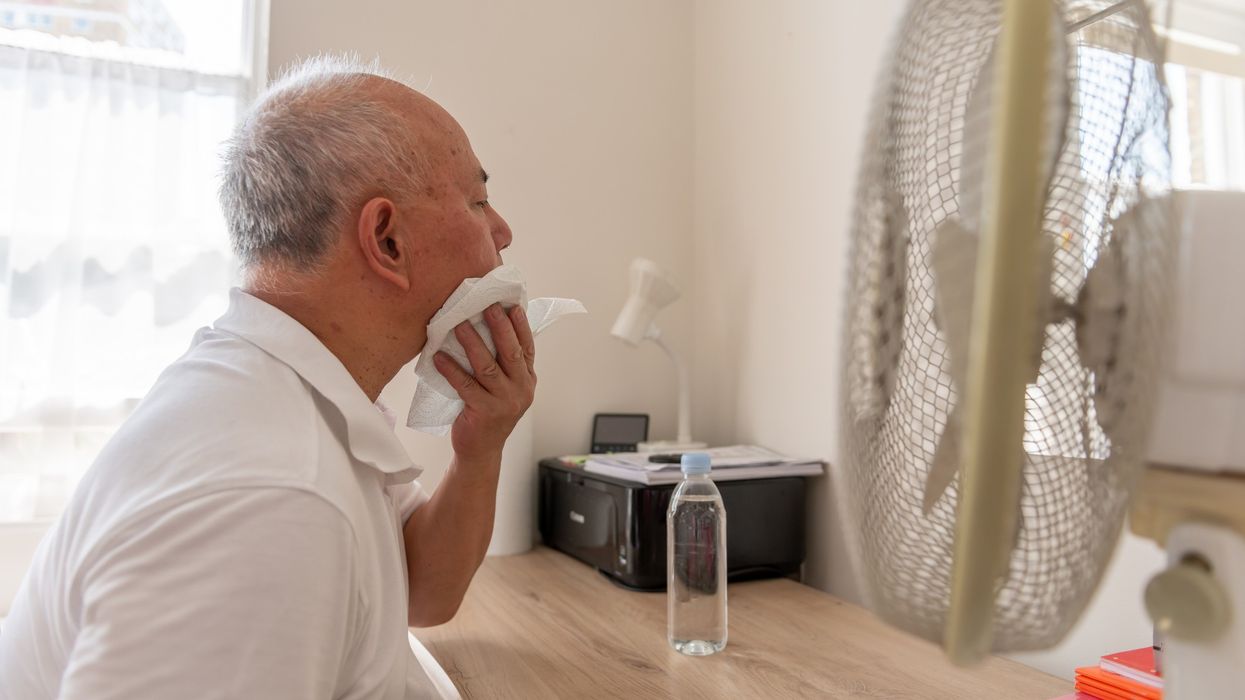Almost 600 premature deaths are expected to occur during the ongoing heatwave affecting England and Wales, according to a new rapid analysis by leading scientists. The majority of fatalities are projected among older adults, with London and the West Midlands likely to be the worst-affected areas.
Climate change driving deadly temperatures
Researchers say the extreme temperatures, which have reached 32°C in parts of south-east England, would have been nearly impossible without the influence of human-caused climate change. Pollution from burning fossil fuels has raised the likelihood of such heatwaves by around 100 times, experts say.
The scientists estimate that human activity has increased the temperatures experienced during this heatwave by 2°C to 4°C, pushing the mercury beyond safe levels for many, particularly the elderly and those with underlying health conditions.
Dr Garyfallos Konstantinoudis from Imperial College London, who helped conduct the analysis, said: “Heatwaves are silent killers – people who lose their lives in them typically have pre-existing health conditions and rarely have heat listed as a contributing cause of death. This real-time analysis reveals the hidden toll of heatwaves, and we want it to help raise the alarm.”
Deaths concentrated among older adults
The analysis, based on decades of UK temperature and mortality data across more than 34,000 locations in England and Wales, projects around 570 excess deaths between Thursday and Sunday. Of these, approximately 129 are expected in London. Scientists believe the figure may be underestimated, as early summer heatwaves often catch people unprepared.
Around 85% of the projected deaths are likely to involve people over the age of 65, who are particularly vulnerable to heat stress. Other at-risk groups include infants, pregnant individuals, and people with cardiovascular or respiratory conditions.
Dr Malcolm Mistry from the London School of Hygiene & Tropical Medicine (LSHTM), who contributed to the study, warned: “Exposure to temperatures in the high 20s or low 30s may not seem dangerous, but they can be fatal, particularly for people aged over 65, infants, pregnant people, and those with pre-existing health conditions.”
Health and emergency services under pressure
The UK Health Security Agency (UKHSA) issued an amber heat-health alert on Thursday, which is set to remain in effect until 9 am on Monday. The warning highlights a risk of increased deaths and severe impacts on health and social care systems.
Medical professionals have reported a rise in heat-related illnesses. Dr Lorna Powell, an urgent care doctor in East London, said: “We are seeing cases of heat exhaustion rising. It can quickly trigger more serious illnesses, as dehydration sets in and the cardiovascular system becomes overwhelmed.”
The UKHSA advises people to stay out of the sun between 11 am and 3 pm, drink plenty of fluids, keep indoor spaces cool, and check in on vulnerable neighbours and family members. Data from a recent study indicates that approximately 80% of UK homes overheat during summer, further exacerbating health risks for residents.
Urban areas face greater risk
City dwellers, especially those in poorly ventilated flats, face higher health risks during heatwaves. Heat becomes trapped in buildings, leading to prolonged exposure, especially at night when outdoor temperatures remain high.
Professor Antonio Gasparrini of LSHTM, another contributor to the analysis, said: “When temperatures push past the limits populations are acclimatised to, excess deaths can increase very rapidly. Every fraction of a degree of warming will cause more hospital admissions and heat deaths, putting more strain on the NHS.”
Poor preparedness criticised
Between 2020 and 2024, more than 10,000 people died in the UK due to heatwaves, according to UKHSA data. Yet in April 2025, the government’s climate advisers criticised the UK’s readiness to deal with extreme heat, calling preparations “inadequate, piecemeal and disjointed”.
Despite growing awareness of climate-related risks, systemic changes to improve resilience, such as retrofitting homes and bolstering healthcare capacity, have been limited.
Government removes barriers to home EV chargers
As part of broader environmental measures, the UK government recently eliminated the requirement for planning permission to install electric vehicle (EV) chargers at homes and businesses. This change is estimated to save an average of £1,100 per installation, according to the Department for Transport, and may aid the shift to low-carbon transport. While unrelated to heatwave policy, the move reflects the government’s push for green infrastructure.
Air quality worsens amid heat
Alongside the heat, a spike in air pollution has raised additional concerns. London has been issued a high ozone pollution alert, with people suffering from respiratory conditions such as asthma advised to avoid outdoor exercise.
Heatwaves becoming more frequent and intense
Global data shows that extreme heat causes more deaths than floods, hurricanes, or earthquakes. According to insurer Swiss Re, heatwaves are responsible for about 500,000 deaths globally each year. “Extreme heat events are more dangerous than natural catastrophes in terms of human lives lost, yet the true cost is only starting to come to light,” said Nina Arquint, chief executive of corporate solutions at Swiss Re.
In 2024, the planet recorded its hottest year on record, driven by climate change and rising emissions. Carbon dioxide levels from fossil fuels continue to increase, pushing the world closer to dangerous temperature thresholds.
A recent report by the UK Climate Change Committee estimates that if global temperatures rise by 2°C above pre-industrial levels, annual heat-related deaths in the UK could exceed 10,000 by 2050.
The scientists behind the current analysis hope that quantifying the hidden human cost of heatwaves will prompt more urgent action to reduce emissions and prepare the UK for a hotter future.





